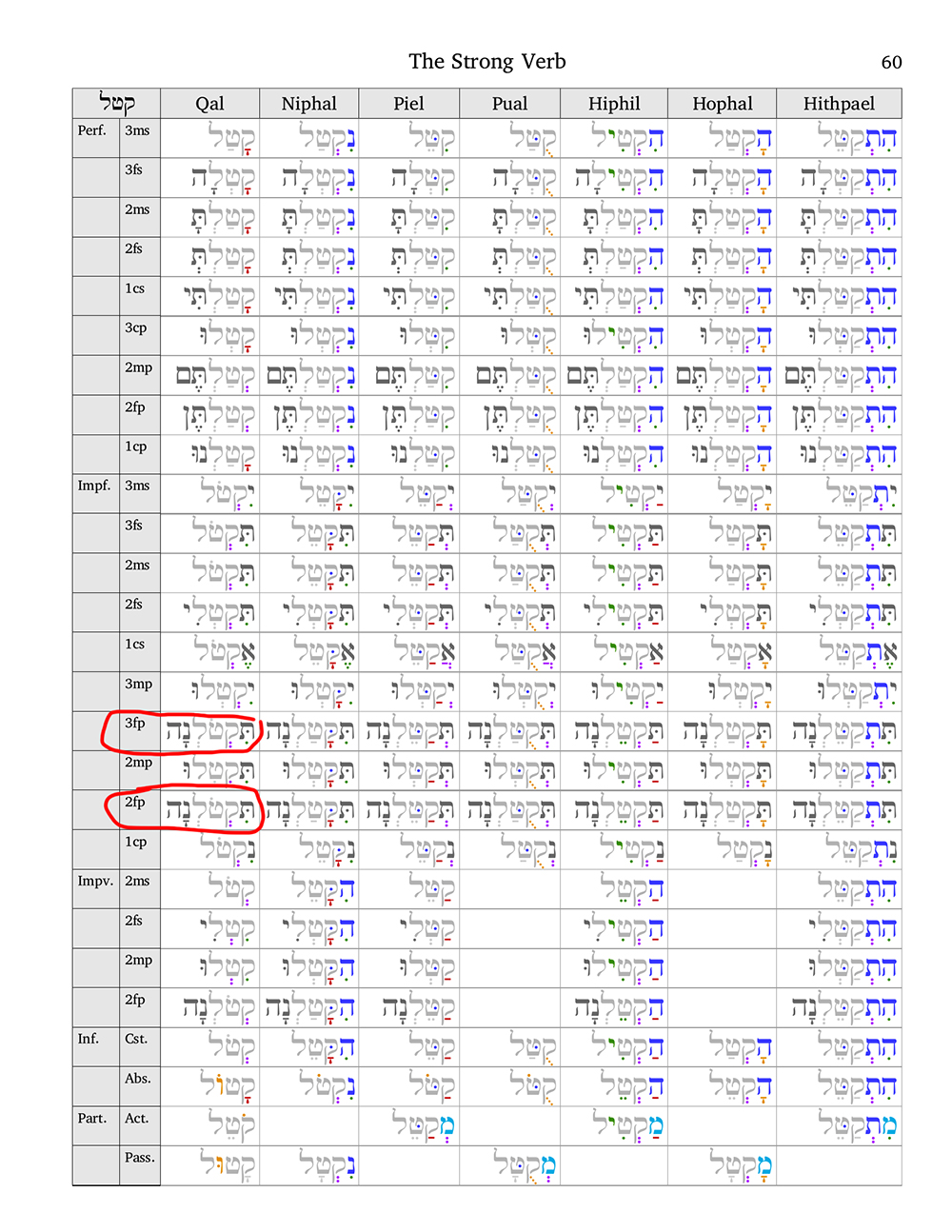Genesis 3:17
Footnote:
| 141 | Eating Garbage Grammar? Paragogic nun ending. Strong’s #6093, עצבון itstsabon. (inner) afflicted one, sorrowful one. Hebrew תאכלנה. they are eating (fem). The suffix "נה" (pronounced as "-na") in Biblical Hebrew is a feminine suffix. It can be either interpreted as "you are eating her" which is where the traditional interpration i.e. "you are eating of it" comes from, or properly as third person feminine plural incomplete "they are eating", or second person feminine plural incomplete "you all are eating." See the chart below. For example:
So, "נה" is added to verbs to match the gender of the subject when the subject is a group of females or a feminine noun. What scholars did here was to take the direct object suffix for "her" as "you are eating her" in a neuter sense "it" and then sneakily plugged in the word "of" to come up with "you are eating of it." It is not only strange to say "you are eating her" in terms of the Ground (hence why they add the words "of it"). The rendering "of it" breaks the rules of what a direct object suffix means. A direct object suffix, as they are interpreting it as, is a direct object suffix. It is not an indirect object suffix, hence, direct object suffix. Hebrew does not have or use indirect object suffixes. Indirect objects are always expressed with prepositions. This is Hebrew 101 level grammar. How to express properly the indirect object? It is quite easy, and the pattern of "eating from/of" (indirect) is used throughout this narrative. Not only that, the preposition מן (min "from out of" ) follows nearly every other instance of the verb "to eat" in the narrative. They are in effect leading one to believe there exists such a prepostion, i.e. "from the ground" when there does not. Here are all the instances:
Hebrew תאכל she is eating In Hebrew, the future tense conjugations for the second person masculine singular and the third person feminine singular forms of verbs appear identical, both written and pronounced. Therefore, "תאכל" (ta'akhal) could represent either "you (masculine singular) eats" or "she eats" depending on the context.
|
